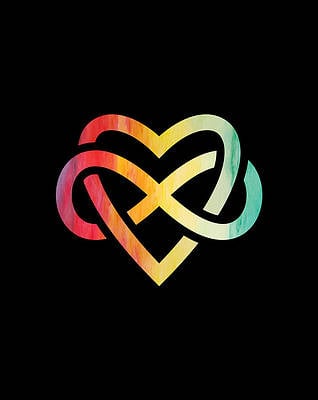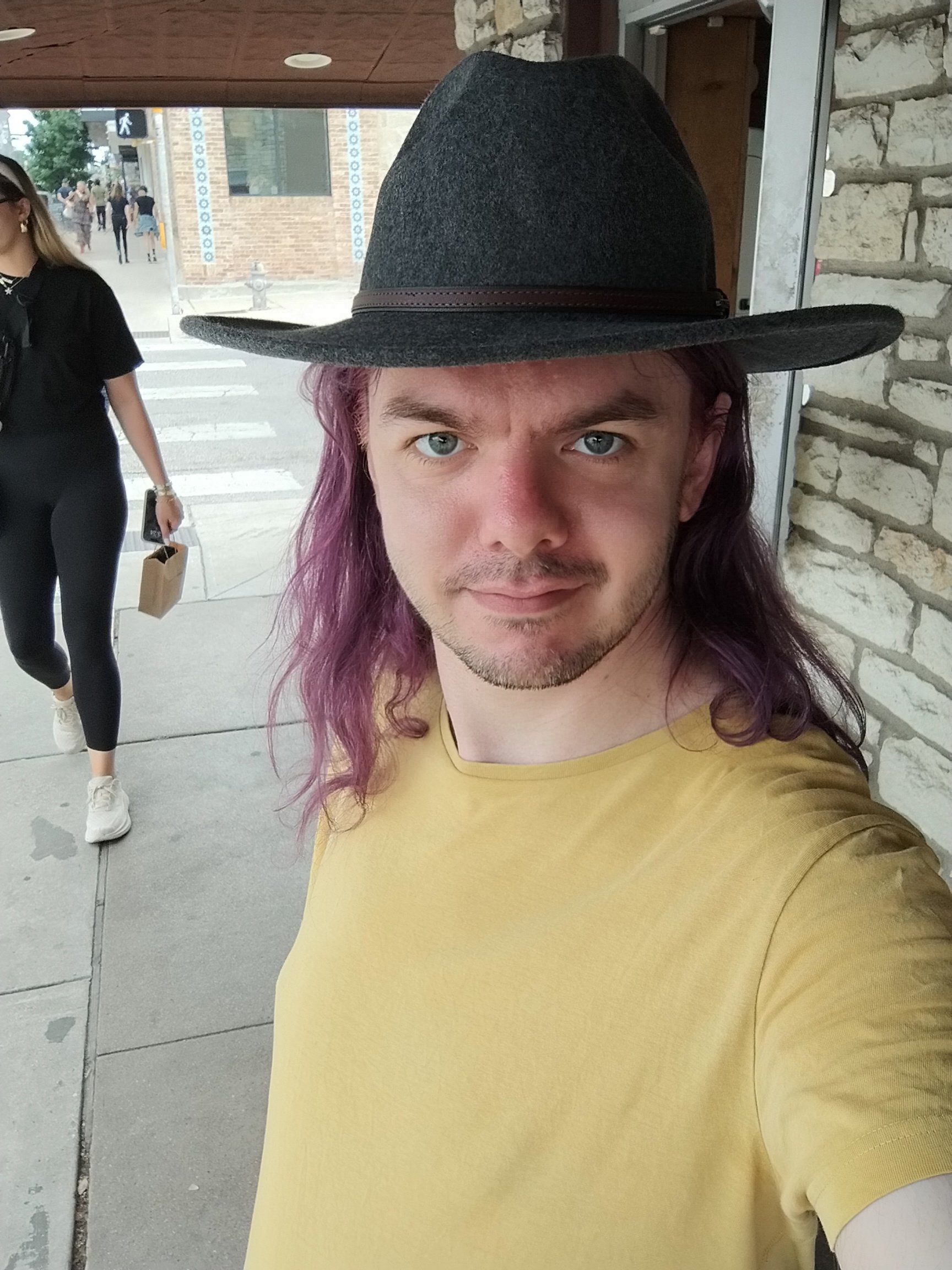I posted this because I liked the open nature of the video, that it includes opinions from different perspectives and because I enjoy Mainely Mandys content.
My personal take: I see no reason to police someones queer identity, so if someone says they are queer then they are queer to me.
My personal take is that cishet people are not queer just for being poly. I’ve seen many claim it, but time and time again they’re uncomfortable with all that comes with queerness
they’re uncomfortable with all that comes with queerness
I cant really grasp what you mean by that. I would love to hear go into more detail what you mean with that.
They often refuse to acknowledge the fact that opposite gender relationships are privileged even within nonmonogamy. They don’t learn the community culture. I’ve seen several instances of them expecting queer organization to do the labor for them instead of with them. I’ve got plenty of experiences of them asking to be part of the community, but that alone shows a failure of understanding of what the community even is. Sylvia Rivera did not ask for the T to be included, she screamed that trans people have already fought and bled alongside cis gay people. They don’t seek refuge in unaligned queer spaces en masse. When the rainbow flag is flying they don’t act like “this is my people”.
But I guess the biggest thing is, they aren’t marginalized in the same way that the umbrella is. A straight trans person is still a f@g to a bigot. A man with two girlfriends and no attraction to men isn’t, he’s a player or a cheater or something else in that vein. A woman with a wife is degendered by bigots, a woman with three husbands isn’t, even if they’re all married to each other too, she’s a slut. My monogamous lesbian friends feel fundamentally not in community and collaboration with cishet poly people, and I can tell the feeling is mutual. Both groups are allied to each other but it’s not even like it is with leather where they know the leather folk will throw down alongside. The queer community really is at its core “we’re similar enough to get mistaken for each other by bigots”. Like how the main secondary targets of transmisogyny are cis lesbians.
This isn’t exclusion for exclusion’s sake but rather a statement of the fact that I see mononormativity as fundamentally a different form of oppression to cisheteronormativity. And because of that, even solely from my perspective as a polyamorous person, I think that inclusion of polyamory into the lgbt umbrella wouldn’t help as much as it hurts. Movement focusing on polyamory will likely do more good on its own separate but in solidarity. It won’t take a backseat that way.
If it was a requirement for a given group to count as queer that all of the members of the group must be comfortable with all the things that comes with queerness, then I don’t think any group would qualify as queer.
For example lesbians would not qualify as queer on account of transphobic lesbians existing.
TL;DR ofc poly is queer.
I’m tired of the recurrent debates about who qualifies and who doesn’t, which factions are probationary, which participants are just allies, and so on.
Every time some new group gains awareness, a startling number of voices pop up saying the new cohort doesn’t belong in the umbrella. They haven’t suffered the same as the rest of us, or haven’t been allies long enough to pay their dues, or they have some disqualifying privilege, whatever.
Gatekeeping the new umbrella term “queer” seems especially ludicrous. What’s the point of reifying normative bounds on others’ behalf? To be fully reclaimed, the liberality of queer’s application in pride should be proportional to that of its use as a slur, which certainly extended to poly folk.
Anyway, if we’re really hung up on technicalities, one could argue that there are no true cishet poly relationships due to the nature of shared intimacy and the 2-colorability problem. Of course, I acknowledge not everyone in a poly relationship is ready to identify as queer. But that’s the thing. People are allowed, to whatever extent they’re able, to decide for themselves when, where, and how they identify. We don’t pull people out of closets, after all, and even that is less ridiculous than trying to push them back in.
Why gatekeep someone’s identity? Does excluding them from mine further my cause? Does ignoring their struggle amplify my own? Are they too privileged to march with me or wear my colors? If so, exactly how much persecution is the correct amount for them to belong? We should know better by now than to entertain that rhetoric. It’s simply against the ethos of the movement and the work we signed up for.
The point of this alliance was never build new exclusive country clubs for ourselves. It was to burn the old ones down. The triumph of inclusion and belonging over normative hegemony is nearly within reach and this gatekeeping toxicity only pushes it further away.
Yes, the new groups will tend to be more privileged. Does it matter? I’ll bleed for them the way others less privileged bled for me. And I’ll keep doing so for each new faction until the term straight itself is meaningless.
So if you feel queer, welcome. Our endgame includes everyone.
Our endgame includes everyone.
That sentence is fire
deleted by creator
I agree entirely. It’s true that some newly added groups will be more privileged than some older groups. But so what? Playing oppression olympics and insisting on a certain level of pain in order for someones minority-status to “count” is a slippery slope towards all kinds of horrible gatekeeping.
Where I live we had a big fight in our largest queer organization decades ago about the inclusion of bi people. Some argued that many bi people have a differently-gendered partner, are thus straight-passing and therefore do not suffer the same level of discrimination as gay and lesbian people do. The fight was so big that the entire organizatio ended up being split in two. And for a while we thus had two competing queer organizations; one that included bi people and one that did not.
Eventually the “bi people count” fraction won, and the two organizations were fused back into one.
Then we almost repeated the failure over the inclusion or not of trans people.
I don’t know how many times we’ll have to do this until people start noticing the pattern.
Yes! And the factions against inclusion are often from a cohort debated just a few years prior, so you’d hope they would remember what it was like to be excluded.
I usually go with the flow in those organizational meetings but never again on this issue. It’s too central to the work and there’s a strong bystander effect when no one sticks their neck out for the outsiders.
The usual protest is some kind of slippery slope “ok then who’s next? How about [insert identities currently considered straight-adjacent]” and I always say “yes” to every example because ofc that’s the damn plan.
We’re entering the phase where social conservatives and RWA types shrink normative bounds by carving out smaller groups subject to arbitrary stigmas in order to isolate and target them (e.g. ace, nb, 2s). So yes, more will seek refuge, including those who were not our allies before or who are new to the experience of being marginalized. And we will welcome them with solidarity and support, because that was what we wanted ourselves not too long ago and it’s been our ethos all along.
Now someone might ask “what if I don’t care about any of that? What if I just want the revolution to begin?” To them I would say this is the revolution, or a version of it at least, and here’s why:
Somewhere down the road is a tipping point where normative identities, carved away as they are by conservative/RWA repression, become too sparse to cohere around a shared notion of normative identity held by a solid majority. That is, at some point most people will have had one or more aspects of their person targeted. At this point, I expect normative hegemony to rapidly collapse (for a few reasons but mostly because RWAs are pathetic cowards). What’s left will be smaller clusters/cliques. Once the process is complete, the idea of heteronormative dominance may sound like artifacts of yesteryear to the average person for whom diversity and divergence is the norm. And at that point, I hope we are able to focus more on the larger arena of economic justice, the common denominator of all social justice causes.
But for any of this to happen we have to reach the critical unification threshold described above, which only happens if we follow through on our alliances and commitment to inclusion and belonging. We cannot win by excluding people for stupid reasons.
If queerness is a social club defined by the people in it, no.
If queerness is a political identity due to legal persecution for “deviant” consenting adult sexual behavior outside of public view, yes.
Queerness is neither. It is who you find yourself attracted to and not.
Way to leave out trans people.


